In film, sometimes there are stories that take precedence over entertainment alone. For decades we have heard about prison reform, but sadly the same problems still seem to persist; prisons are overcrowded, conditions are life threatening, some are unjustly incarnated, among a list of other issues. A topic that hits hard for many, esteemed Actors Tyrese Gibson and Terrence Howard recently joined up to co-star in the new film The System.
A story about a former marine (Gibson) with his back against the wall and facing prison time, he is asked to enter a dangerous private prison to find out more about an underground fighting ring. Faced with challenges never experienced in the outside world, this man must literally fight for his life out of a corrupt system in order to get back to his ill young daughter.
Released in theaters on October 28th, and digitally November 9th, both Tyrese Gibson and Terrence Howard took the time to talk about working together on The System, the magnitude of the corruption in private as well as state-run prison, plus a lot more.
Cryptic Rock – You have both had very accomplished careers as actors. Tyrese, you have acted and had success in music. Terrence, you have attained tremendous success in film and television. Briefly tell us, how would you describe your incredible journeys to this point?
Tyrese Gibson – You know there’s a saying – if you take your access for granted, your access will no longer be granted. As blessed as you are, you should never, ever get too familiar with being blessed. Everything about your life should remain a big deal, everything… and that’s how I feel.
In my life, I feel like I’ve lived the life of a thousand people that will probably never be able to see or experience the things I’ve been able to see and experience in my lifetime ever in their lifetime. From the perspective of music, movies, traveling, seeing the world, and just doing things… It’s been life-changing. I never take it for granted.
Just looking at Terrence Howard, and I’m such a big fan and supporter of this man and his talent. I was actually there with John Singleton at the Sundance Film Festival when they sold Hustle & Flow. I remember Taraji Henson and Terrence Howard sitting behind me, I got up, and thought, “I cannot believe that I actually know them.” This even though me and Terrence had already worked together; we did Four Brothers (2005) together.
It was good to be opposite my brother Terrence in The System. I felt like in our roles we were put in a position of power. Men don’t express their vulnerability or discomfort, because we tend to not have platforms to express that. But I really wanted us to look and feel uncomfortable throughout the duration of The System, and I think that’s what we accomplished. It took me three months of therapy after this film was over to decompress from all the energy that we experienced in an active prison in Mississippi, in real jail cells, and around real prison inmates. Also, the energy of being in Mississippi and its long history of racism and slavery… it was just uncomfortable.
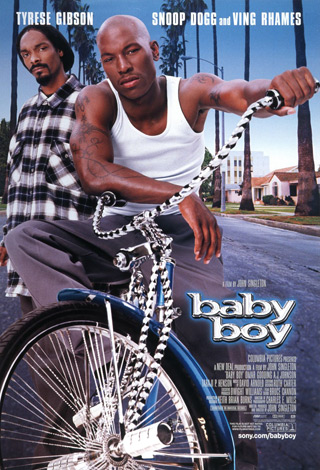
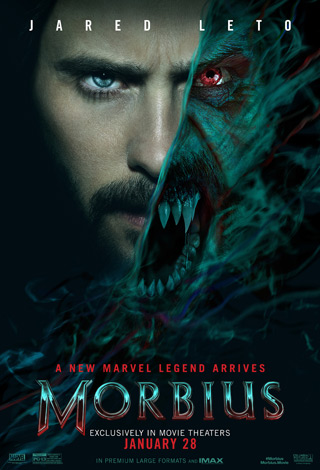
Terrence Howard – You have to remember this business is about friendships and relationships. Every once and a while you will have an actor who has a great relationship with a studio or with a particular producer or network. They will kind of get the red carpet and be ushered in, but for most of us, it’s war on a daily basis with self, material, and all the stuff that comes together for it. When I came into this business, I had these rose-colored glasses where I thought it was all cheery and sparkly. Then you get in there and they will turn you into an emotional prostitute if they have the opportunity. They will keep making you turn tricks for more and more people without the benefit of the pay. The hardest thing was coming together and starting to be able to make money in this business.
I recently finished an arbitration against a massive company, and one of their executives had the audacity to come in there and say right in front of the arbitrator, sitting two feet away from me, without even looking at me – “Terrence doesn’t compete with this studio, he’s a piece of talent.” That’s how they view us, as a piece of talent, not as talent, but just a piece of talent. Once you have to reconcile that, then it changes how you view the approaching of the rest of the work. Then you pick your material a lot more carefully; you make sure that it’s just not entertainment and there is a message involved in it. You make sure there is a process of edification hopefully for the people that you’re dealing with. Therefore, we approached The System in that matter.
To have your friends praise the work that you do, like after Tyrese did Baby Boy in 2001; everybody wanted that smile, charisma, and the silence that he used. We all talked about it, we wanted to be able to sing like Tyrese and do the things he does. It’s about having your friend, and the people that you love, actually appreciate the work that you do; that’s the reward at the end of the day for this. And then it is when the audience responds to our work and appreciates the contribution we make, because you have to remember with every role you take on, you are setting yourself aside and picking up someone else’s issues, and ignoring all of your own issues. When that role is done, that spirit that you picked up doesn’t necessarily want to let you go… because you got comfortable in these shoes even though they might not be your right size of shoes. There are personality conflicts that come about in you that are trying to bring yourself back together. I love the fact that Tyrese took the time to see a therapist for three months at the end of his role in The System. Those kinds of roles can sometimes flip you to become an angry, evil person at the end of that when you have had to fight to the death in particular places; our body, mind, and hearts don’t know that we’re faking this. You need the community of friends and family to keep you together.
That’s been my journey in this business – I’ve had great success and great failure. I’m grateful for each and every aspect of it, but what I’m really grateful for now is to finally be able to tell a story about the atrocities taking place in our privatized and state-run penitentiary; this is still slavery at the end of the day. Being able to shed some light on these people stuck in a hole for so long makes all of it worthwhile.
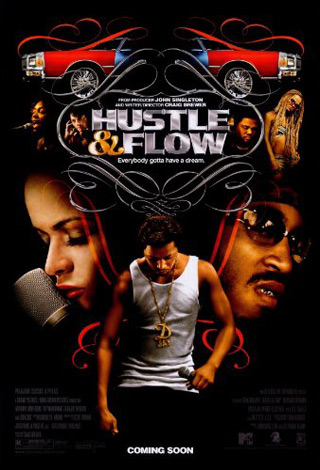
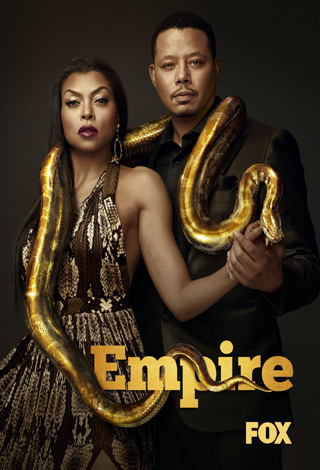
Cryptic Rock – It seems like you have both had very interesting, enlightening, and educational journeys. Which leads us into The System; a film that shows us a lot of injustice, corruption, and poor treatment of other human beings within the prison system. As you mentioned, this is something more than entertainment. So, how did the project come about for both of you?
Tyrese Gibson – Dallas Jackson (the director), who I knew through our brother John Singleton (RIP), approached me. The System was just like a John Singleton fraternity moment; John was the glue that introduced so many of us to so many different areas of film. Everybody that we met from being in the school of John Singleton, we’ve all really committed ourselves to making sure that we keep creating and collaborating just on behalf. When he was alive, we had that commitment, but when he passed on, we really made that commitment.
Dallas Jackson is from the John Singleton school; so am I, and so is Terrence. They gave me these options of people they wanted me to be opposite of, and I will not mention their names because their all-big time and alright. I said it has to be Terrence Howard, if Terrence Howard is available, I want him. Terrence in silence, with the seriousness of his eyes and his intensity as an actor, was something I knew this film needed. There are so many moments in this film where we are saying everything we needed to say in the scene without words.
Just the way we would look at each other in the film; you just could tell the wheels are turning. When Terrence’s character was talking to me, I was listening, intentionally holding onto every word that he said, because he had been in the system for so long. My character couldn’t really lean on any of their own instincts on how I could live and survive, to get out to my daughter with blood clots in her head.
It was a no-brainer for me to say I wanted to do this with Terrence and Jeremy Piven. It was odd and magical. Everything about the thought of it may have been odd to some, but when they see the movie, it was exactly what we wanted. (Laughs)
Terrence Howard – And watching Jeremy and Tyrese’s interaction was great; Tyrese went deep into his character. What I wanted to do was to put his character in a place that he could survive there. Sometimes that involves smiling and surrendering to the space that you’re in and being able to find some joy in whatever little pieces that you can. I could not evoke a single smile from this man. When you see the film, you will see Jeremy’s character doing everything he can as this warden to try and get Tyrese on his side; but there will never be a time where he’s able to break through whatever boundary Tyrese’s character has placed up there.
Some actors are able to go in for a little bit, but for someone to stay in so long as Tyrese, I was so very impressed with who he was. Typically, there is a joke or something that Tyrese brings with humor and levity to it, but he abandoned that plethora of tricks he could use at a given time to win an audience. He allowed the pain of the character to sit there. Therefore, I think the audience will be able to identify their own family members and loved ones and what they might be suffering through. It’s shedding light on this darkened circumstance and I hope it will give people a better opportunity to get to this short thing called life.
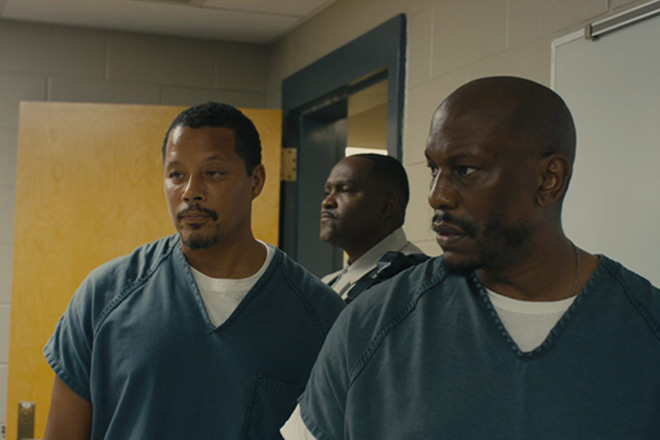
Cryptic Rock – There is certainly an intensity throughout the film. This film sheds light on so many issues, and it would be difficult to touch on all of them in one interview. It shows us the failure of the incarnation system in the United States. It shows us that many are unjustifiable incarnated, mistreated, but also that the system does not prepare anyone for life once they are freed.
Tyrese Gibson – It goes both ways, there is no preparation for going to jail. No one is prepared to go to jail and no one knows why they will ultimately go to jail. No one knows if they will say or do something and be in a predicament where they are forced to protect themselves, and say, “I did that out of self-defense,” and they don’t see it that way, then you’re in jail. They don’t create the thinking before you go, they definitely don’t help while you are in there, and they definitely don’t help you to transition out of prison back into the streets and regular society.
So, you find yourself saying if I did ten years in jail, I know more about how to survive in prison than I do with my actual freedom. You have this instinct that you have community and friends in jail. Yea it’s dangerous, but I’m not missing a meal, I have a shower, and I have a place to sleep. Then you chuck someone back into the streets and everything about their life from ten years ago is gone and don’t have anything. So, you’re right back thrusted into survival instincts; hustling and doing whatever it takes to stay afloat. Most people have to make bad choices while they are getting quick money.
Again, prison reform is the conversation; police reform, for all the bad cops out here continuing to do bad things. Listen, right now, the lottery is up to around seven-hundred million… I think if I won the lottery, I would literally put twenty million dollars into putting Black and Brown lawyers through law school so they could become judges, District Attorneys, and lawyers to give Black & Brown people proper representation. Put us physically in these rooms so we can try and diminish this pipeline of us continuing to be enslaved. There are only so many Black people in the world, and if you chop off the head, the rest of the body will follow. The head of the household is the man; the father, the husband, the grandfather. You cannot expect these young teenagers to not be lost out here when they are being raised by single mothers because their fathers are locked up.
I think there are so many different triggers and boxes that I specifically wanted to check… and that is why I did this movie. There was no money in this movie. As a matter of fact, I ended up paying more out of my pocket in order to contribute to this movie so that things could make sense that weren’t making sense; they couldn’t afford for it to make sense. That little girl who played my daughter, I flew her out, I paid for her hotel room, I gave her money for her time and her mother money. If we didn’t have a little girl who was physically in the movie and I keep saying “I have to get out for my daughter,” yet I have no interaction between me and my daughter, the whole movie goes capoosh.
I just did what I had to do. I called Terrence and said, “This isn’t the biggest payday you have ever had, but let’s do this and make this statement.” The main thing for us was impact. The motivation was creating this discomfort with Black and Brown people to say, “Man I hope I never go to jail; did you see that shit?” That’s the goal.

Terrence Howard – Can you imagine if some really nice police officers showed up at your house and said they are about to take you to this lion’s pit. And inside this lion pit is about two-hundred lions roaming about; half haven’t eaten and have been provoked. Do you think that the police will remain safe if they are trying to throw you into this place where you will more than likely get killed… because that is the reality of prison. You should be safer in prison than you are on the street. With all those guards and all those protections that are supposedly there, you shouldn’t have to worry about anything besides being rehabilitated, changing your thought processes, etc. But, because of all those things, it’s an unsafe environment.
You are putting police officers at risk, because if a police officer tried to take me to prison, I’m sorry, I’d fight to the death… I don’t want to go there for two days. I’m not the only cat who’s like that. That is because prison is not for reforming or rehabilitating people. Prison is there to make business, money, and collect a bunch of people they don’t want on the outside… because most of these individuals will end up becoming someone who is going to fight against the system. The truth is the system ain’t broken, it’s fixed. In order to make police officers safer, we have to change the conditions inside of that place so when the police pull someone over that person doesn’t feel like it’s life or death. The entire system needs to be corrected; even if it calls for complete anarchy and we have to break down, we have to do what we have to do.
Cryptic Rock – You both articulate a lot of very strong, truthful points. The film is also very effective in raising bringing this message.
Tyrese Gibson – It’s not that often films have messages in them; so many people are focused on things blowing up. I really wanted people to know there are some real things going on out here. We are literally at war; mental, emotional, spiritual warfare that is happening every single day.
We will do anything we can do to use our God-given stage and platform to shed light on these injustices. Yea, we may live in a certain house, drive particular cars, but part of being an impact is for you to always get beyond your bubble in your reality and try to see things through the lens of other people’s experiences.
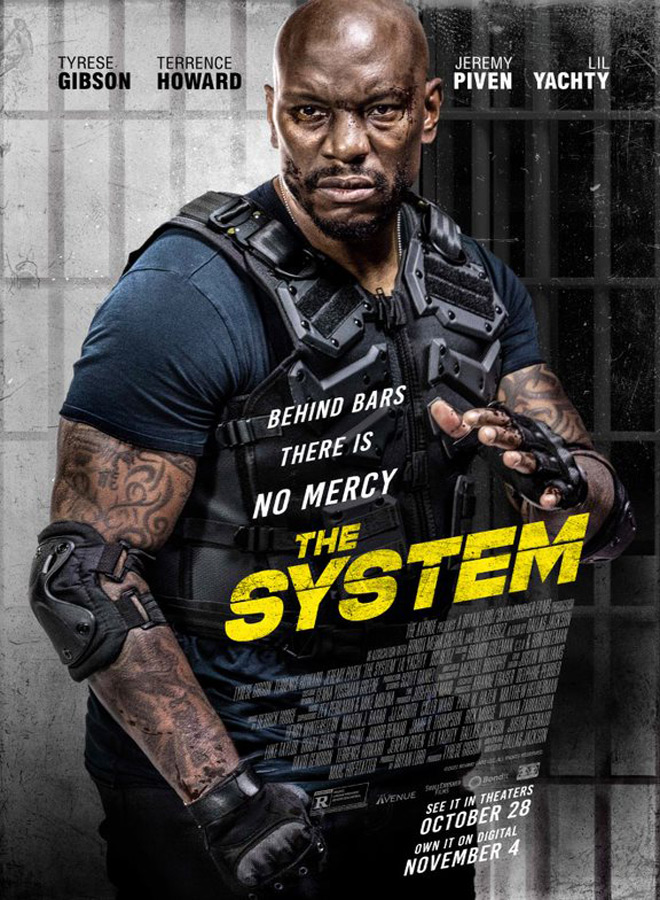
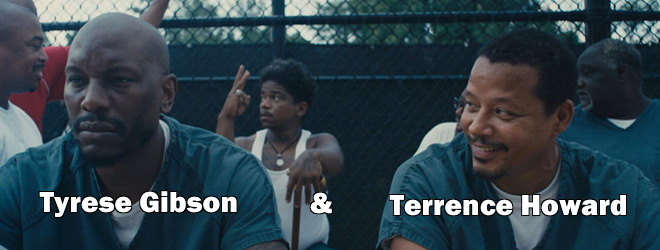
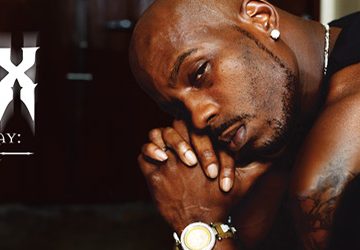
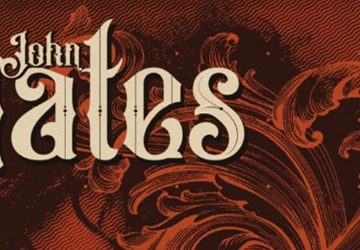


No comment